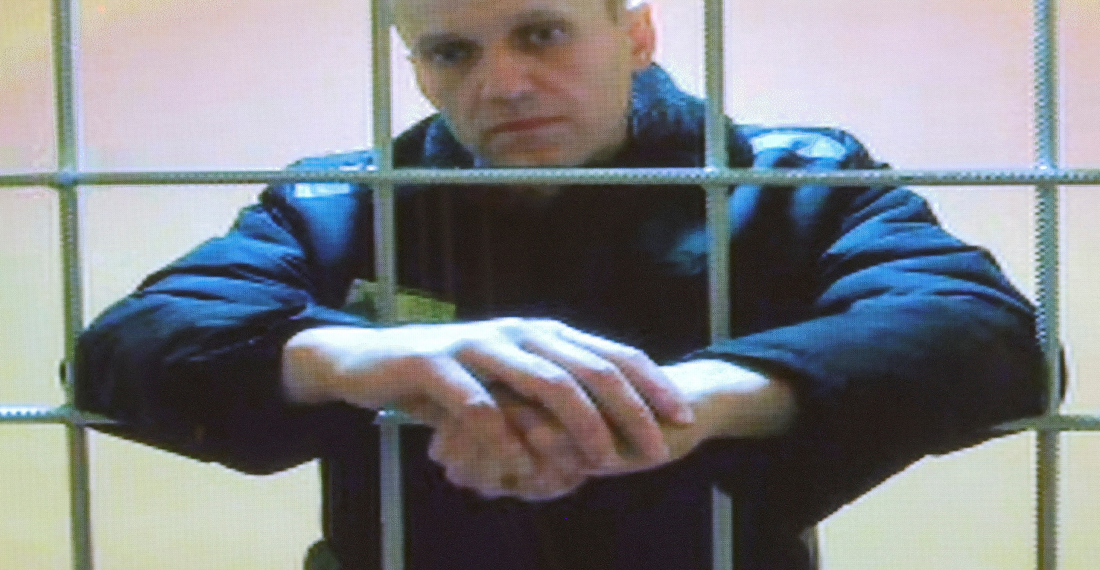Russian judicial authorities have opened a new criminal proceeding against the already jailed opposition leader Alexei Navalny, after allegedly "provoking" prison staff on Monday (17 April).
According to Navalny's lawyer, the charges are related to an incident in which Navalny allegedly refused to follow prison rules and insulted a guard. Navalny might have to face 5 more years in jail after the incident.
The news comes after prominent Kremlin critic Vladimir Kara-Murza was sentenced to 25 years in prison, also on Monday, for opposing the war in Ukraine. It is the longest sentence to be handed down to a political opponent of Vladimir Putin.
Reports of Navalny's worsening condition
The Guardian newspaper has also reported that Alexei Navalny is in a critical condition after possible poisoning. According to one of his allies, Navalny was transferred to a prison hospital after showing symptoms consistent with possible poisoning. The ally also claimed that Navalny was in a "serious but stable" condition, and was receiving medical treatment.
Alexei Navalny has been imprisoned since January 2021, sentenced to now what amounts to 11 and a half years, and may be facing five more. Navalny has been on a hunger strike since late March to protest against the lack of medical treatment he had received while in prison. His supporters claim that he has been denied access to proper medical care and that his health has deteriorated significantly in recent weeks.
Shaveddinov, manager of Alexey Navalny's Anti-Corruption Foundation (FBK) and press secretary of Navalny's presidential campaign in 2018, told The Guardian that his team believes Navalny was being slowly poisoned.
"Our theory is that they are gradually killing him, using slow-acting poison which is applied through food," he said.
source: commonspace.eu with The Guardian, other agencies
photo: Reuters






